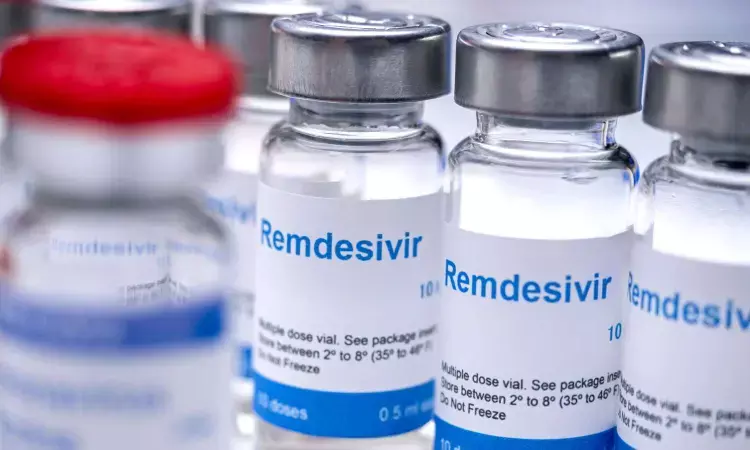- Home
- Medical news & Guidelines
- Anesthesiology
- Cardiology and CTVS
- Critical Care
- Dentistry
- Dermatology
- Diabetes and Endocrinology
- ENT
- Gastroenterology
- Medicine
- Nephrology
- Neurology
- Obstretics-Gynaecology
- Oncology
- Ophthalmology
- Orthopaedics
- Pediatrics-Neonatology
- Psychiatry
- Pulmonology
- Radiology
- Surgery
- Urology
- Laboratory Medicine
- Diet
- Nursing
- Paramedical
- Physiotherapy
- Health news
- Fact Check
- Bone Health Fact Check
- Brain Health Fact Check
- Cancer Related Fact Check
- Child Care Fact Check
- Dental and oral health fact check
- Diabetes and metabolic health fact check
- Diet and Nutrition Fact Check
- Eye and ENT Care Fact Check
- Fitness fact check
- Gut health fact check
- Heart health fact check
- Kidney health fact check
- Medical education fact check
- Men's health fact check
- Respiratory fact check
- Skin and hair care fact check
- Vaccine and Immunization fact check
- Women's health fact check
- AYUSH
- State News
- Andaman and Nicobar Islands
- Andhra Pradesh
- Arunachal Pradesh
- Assam
- Bihar
- Chandigarh
- Chattisgarh
- Dadra and Nagar Haveli
- Daman and Diu
- Delhi
- Goa
- Gujarat
- Haryana
- Himachal Pradesh
- Jammu & Kashmir
- Jharkhand
- Karnataka
- Kerala
- Ladakh
- Lakshadweep
- Madhya Pradesh
- Maharashtra
- Manipur
- Meghalaya
- Mizoram
- Nagaland
- Odisha
- Puducherry
- Punjab
- Rajasthan
- Sikkim
- Tamil Nadu
- Telangana
- Tripura
- Uttar Pradesh
- Uttrakhand
- West Bengal
- Medical Education
- Industry
Remdesivir does not increase the risk of cardiac events in COVID-19 patients, suggests study

A recent comprehensive post-hoc safety analysis found that the antiviral drug remdesivir assure cardiac safety profile. When administered to the hospitalized patients with COVID-19, it does not elevate the risk of cardiac adverse events (AEs). These finding were published in the Clinical Infectious Diseases highlight the ongoing debate about the safety of remdesivir in the COVID-19 treatment.
The analysis focused on the cardiac health of patients and was derived from the multicenter, randomized, open-label, controlled DisCoVeRy trial that compared the effects of remdesivir with standard of care (SoC) against SoC alone in hospitalized COVID-19 patients. The study scrutinized the occurrence of any first adverse event from the time of randomization up to 29 days post-treatment in a modified intention-to-treat (mITT) population.
This trial observed cardiac adverse events in 11.2% of patients in the remdesivir group (46 out of 410) and 11.3% of patients in the control group (48 out of 423) that revealed no significant difference in cardiac risk between the two groups. This similarity held true across the various analyses that included both serious and non-serious cardiac events with arrhythmic events being the most common but generally leading to favorable outcomes.
These findings are crucial after considering the outcomes of the previous studies and analyses that hinted a potential association between remdesivir treatment and cardiac AEs. However, the data from the DisCoVeRy trial suggest that remdesivir can be administered without much added concern for cardiac safety among the hospitalized patients with moderate to severe COVID-19. This aligns with the outcomes from other randomized controlled trials and meta-analyses that further strengthens the case for the safe use of remdesivir in the fight against COVID-19.
The patients and healthcare providers have been navigating the challenges of COVID-19 treatment options, with the safety and efficacy of treatments being paramount. Overall, the contribution of DisCoVeRy trial is significant by offering a sharp reassurance about the cardiac safety profile of remdesivir where these findings are vital for informing the treatment strategies and ensuring the safety of patients.
Reference:
Terzić, V., Miantezila Basilua, J., Billard, N., de Gastines, L., Belhadi, D., Fougerou-Leurent, C., Peiffer-Smadja, N., Mercier, N., Delmas, C., Ferrane, A., Dechanet, A., Poissy, J., Espérou, H., Ader, F., Hites, M., Andrejak, C., Greil, R., Paiva, J.-A., … Staub, T. (2024). Cardiac Adverse Events and Remdesivir in Hospitalized Patients with Coronavirus Disease 2019 (COVID-19): A Post Hoc Safety Analysis of the Randomized DisCoVeRy Trial. In Clinical Infectious Diseases. Oxford University Press (OUP). https://doi.org/10.1093/cid/ciae170
Neuroscience Masters graduate
Jacinthlyn Sylvia, a Neuroscience Master's graduate from Chennai has worked extensively in deciphering the neurobiology of cognition and motor control in aging. She also has spread-out exposure to Neurosurgery from her Bachelor’s. She is currently involved in active Neuro-Oncology research. She is an upcoming neuroscientist with a fiery passion for writing. Her news cover at Medical Dialogues feature recent discoveries and updates from the healthcare and biomedical research fields. She can be reached at editorial@medicaldialogues.in
Dr Kamal Kant Kohli-MBBS, DTCD- a chest specialist with more than 30 years of practice and a flair for writing clinical articles, Dr Kamal Kant Kohli joined Medical Dialogues as a Chief Editor of Medical News. Besides writing articles, as an editor, he proofreads and verifies all the medical content published on Medical Dialogues including those coming from journals, studies,medical conferences,guidelines etc. Email: drkohli@medicaldialogues.in. Contact no. 011-43720751


